Eddy Vinck
One Framework To Rule Them All: Faster Websites With Astro
#1about 3 minutes
Introducing Astro for content-focused websites
Astro is a flexible framework designed specifically for building fast, content-focused websites like blogs and e-commerce stores, not complex web applications.
#2about 1 minute
Shipping zero JavaScript by default with Astro
Astro uses zero JavaScript as a baseline to ensure fast performance, allowing developers to intentionally add interactivity where it enhances the user experience.
#3about 2 minutes
Understanding the Islands Architecture for partial hydration
The Islands Architecture allows for partial hydration by loading JavaScript only for specific interactive components using client directives like `client:visible`.
#4about 2 minutes
A developer's journey from PHP and Gatsby to Astro
The speaker shares their personal experience moving from a custom PHP site and a complex Gatsby setup to Astro for a simpler, more focused development experience.
#5about 2 minutes
Exploring the Astro ecosystem of integrations and themes
Astro's ecosystem includes a wide range of official and community integrations for tools like Tailwind CSS and React, as well as themes to jumpstart projects.
#6about 1 minute
Real-world examples of companies using Astro
Major companies like Google, The Guardian, NordVPN, and Trivago are already using Astro to build their engineering blogs and content-heavy websites.
#7about 3 minutes
Getting started with a new Astro project
Learn how to initialize a new project using the CLI, understand the basic folder structure, and see the anatomy of a `.astro` file with its front matter and scoped CSS.
#8about 1 minute
Using content collections for type-safe markdown
Content collections provide build-time type safety for your markdown front matter, ensuring that required data fields like titles and dates are always present and correct.
#9about 7 minutes
Live demo of building and deploying a blog with a theme
A step-by-step demonstration shows how to create, customize, and deploy a full-featured engineering blog in minutes using an Astro theme and Netlify.
#10about 1 minute
Integrating UI components and choosing a rendering mode
Discover how to pass data from Astro into UI framework components like SolidJS and learn about Astro's support for server-side and hybrid rendering.
#11about 1 minute
Summary of when you should choose to use Astro
Astro is the ideal choice for content-focused projects, but may not be the best fit for highly dynamic, client-side web applications like dashboards.
#12about 4 minutes
Audience Q&A on use cases, CMS, and SEO
The Q&A session covers when to avoid Astro, CMS recommendations for non-technical users, using container queries, and how static site generation benefits SEO.
Related jobs
Jobs that call for the skills explored in this talk.
Technoly GmbH
Berlin, Germany
Senior
JavaScript
Angular
+1
Hubert Burda Media
München, Germany
€80-95K
Intermediate
Senior
JavaScript
Node.js
+1
Matching moments
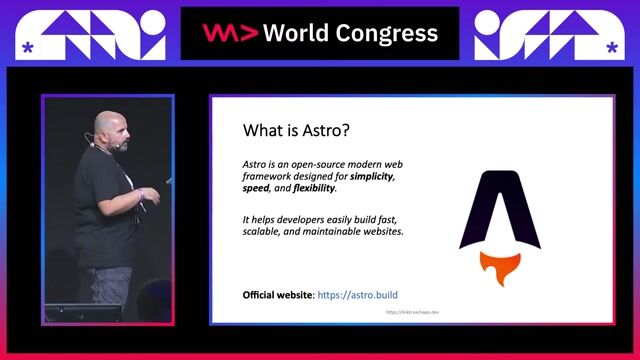
02:14 MIN
Exploring Astro's key features and architecture
Beyond Warp Speed: Crafting the Future of Web Development with Astro 4.10
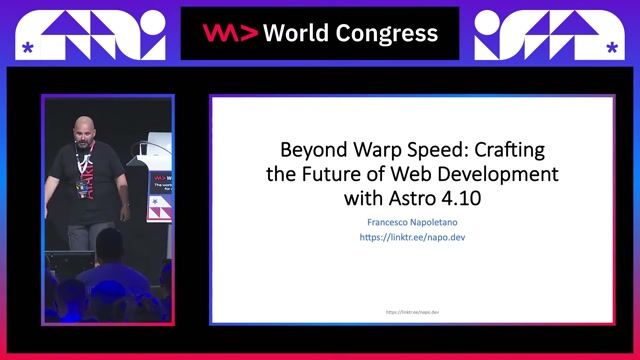
02:26 MIN
Understanding the core principles of the Astro framework
Beyond Warp Speed: Crafting the Future of Web Development with Astro 4.10
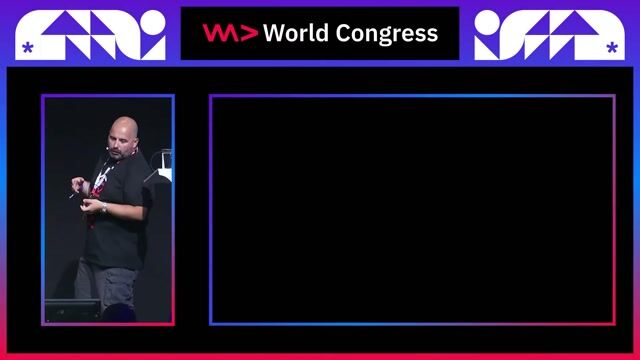
02:47 MIN
Achieving top performance and easy customization
Beyond Warp Speed: Crafting the Future of Web Development with Astro 4.10
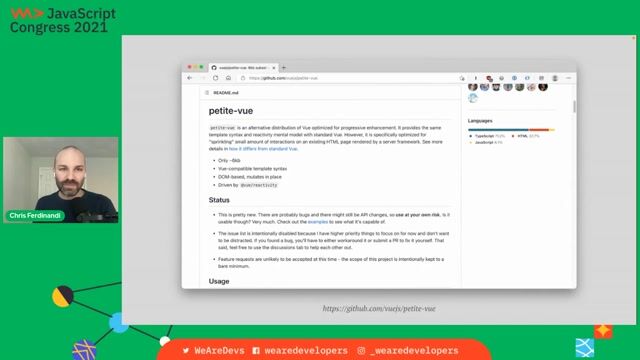
04:27 MIN
Leveraging pre-compilers like Svelte and Astro
The Lean Web
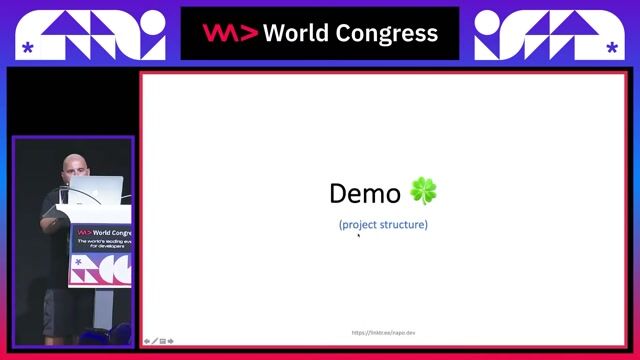
03:21 MIN
Leveraging component islands for optimal performance
Beyond Warp Speed: Crafting the Future of Web Development with Astro 4.10

05:25 MIN
The case for framework-free web development
The Naked Web Developer: Your Browser Is Your Framework
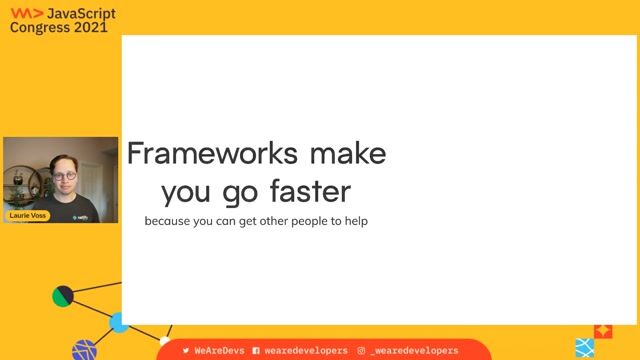
05:42 MIN
A detailed breakdown of modern web frameworks
Web development best practices in 2021

04:25 MIN
Rethinking frameworks with Nuxt, Nitro, and UnJS
Building for the Edge - Crafting a Next-Gen Framework
Featured Partners
Related Videos
 46:46
46:46The Lean Web
Chris Ferdinandi
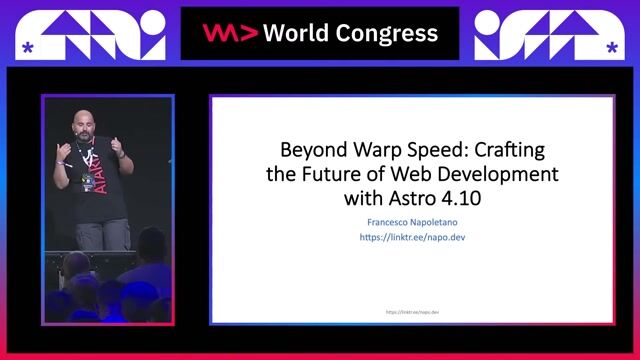 24:33
24:33Beyond Warp Speed: Crafting the Future of Web Development with Astro 4.10
Francesco Napoletano
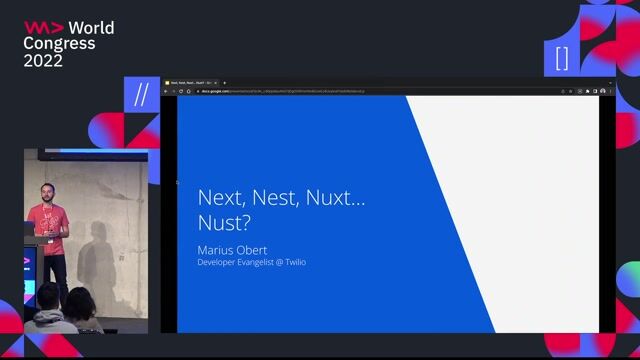 26:30
26:30Next, Nest, Nuxt… Nust?
Marius Obert
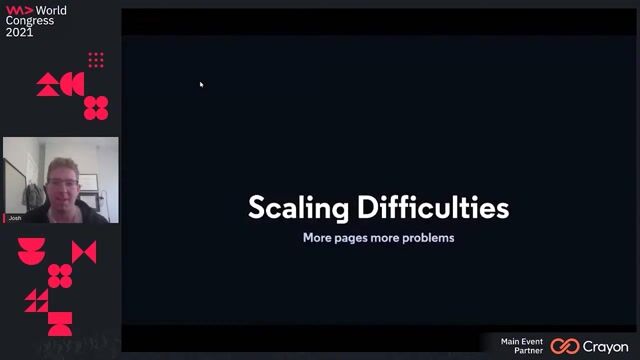 43:20
43:20Microfrontends at Scale
Josh Goldberg
 42:46
42:46The Naked Web Developer: Your Browser Is Your Framework
Avichay Eyal
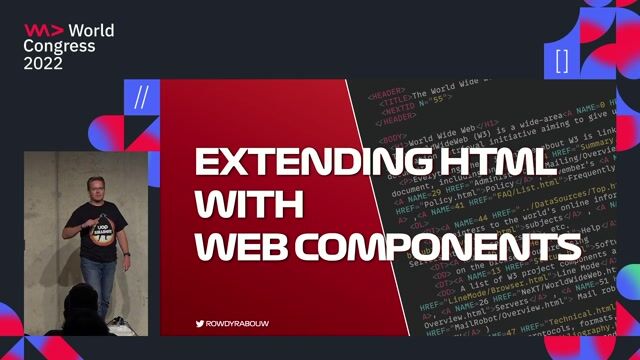 41:54
41:54Extending HTML with Web Components
Rowdy Rabouw
 45:40
45:40Micro Frontends with Module Federation: Why and How?
Manfred Steyer
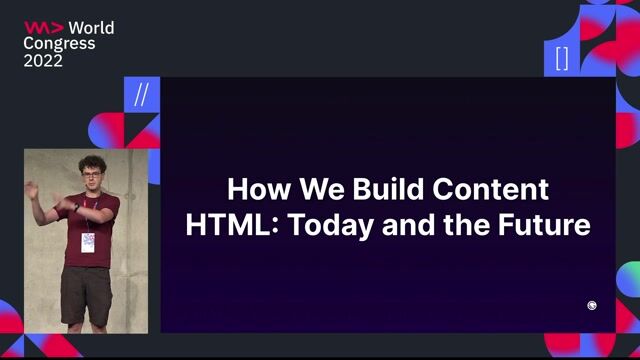 42:10
42:10How Gatsby Cloud's real-time streaming architecture drives <5 second builds
Kyle Mathews
Related Articles
View all articles



From learning to earning
Jobs that call for the skills explored in this talk.

&why GmbH
Berlin, Germany
€50-70K
Junior
Intermediate
Senior
React
Next.js
TypeScript

PiNCAMP GmbH
Berlin, Germany
Senior
React
GraphQL
Next.js

Code Healers LLC
Hinesville, United States of America
Remote
€40-50K
Intermediate
Senior
PHP
.NET
React
+2

Confideck GmbH
Vienna, Austria
Remote
Intermediate
Senior
Node.js
MongoDB
TypeScript

Multiplied
The Hague, Netherlands
Remote
Intermediate
API
CSS
HTML
React
+5

Frontier Resourcing
Southampton, United Kingdom
£50-80K
GIT
React
Vue.js
Node.js
+4



Anexia Cloud Solutions GmbH
Graz, Austria
€54K
Nginx
React
DevOps
Docker
+5